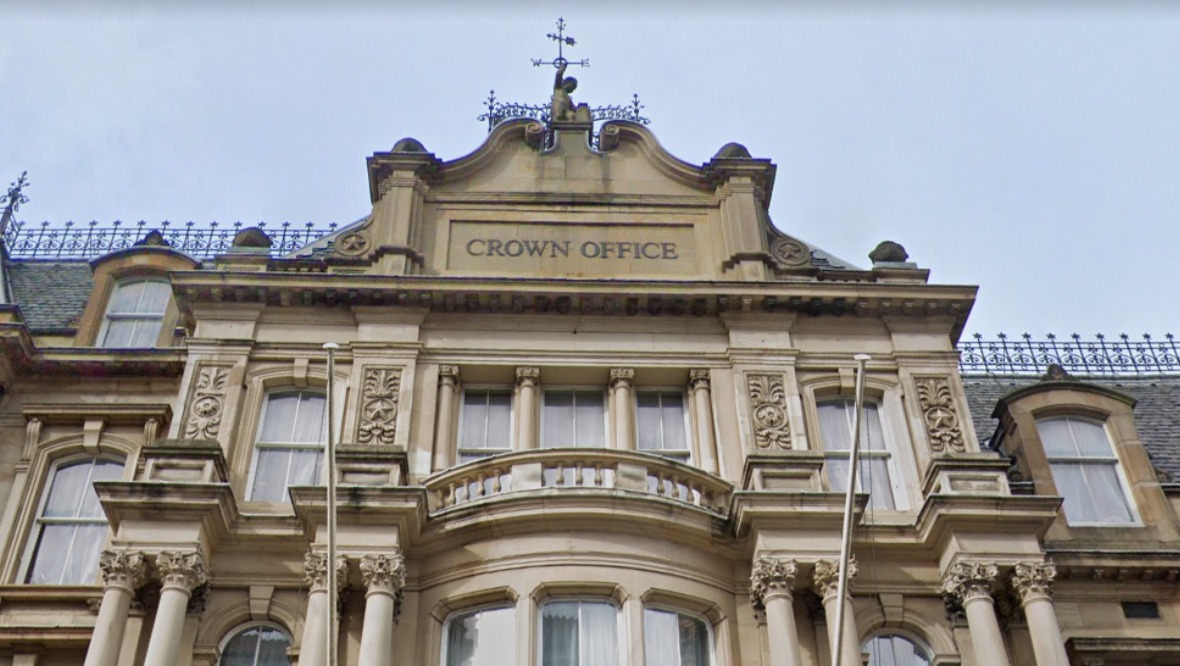The Crown Office is under assault as never before.
Last week, the former justice secretary Kenny MacAskill told the House of Commons that the Lord Advocate’s position was untenable after he delivered a verbal mauling of the current prosecution hierarchy.
It was without precedent and made all the more remarkable as it was delivered by a former MSP who used to be accountable to the Scottish Parliament for the country’s justice system.
The East Lothian MPs charge was a serious one: that in the fallout from the prosecution of Alex Salmond, a journalist and a blogger had been targeted by the Crown in pursuing contempt of court charges, whilst others had written freely on the proceedings in much the same manner.
 SNS Group
SNS GroupToday in Edinburgh the former diplomat turned journalist and commentator Craig Murray sought leave to appeal to the Supreme Court against a conviction for contempt of court. Judges will issue a note of their decision on that tomorrow. He could now go to jail for eight months for the jigsaw identification of witnesses in the case of HMA v Alex Salmond.
From John Pilger to Tariq Ali and the aforementioned MacAskill, Murray’s prosecution and conviction is seen by many, not as a robust defence of the principle of protecting the identification of women in sex crime trials, but as an attempt to muzzle freedom of speech. The allegation is that prosecutions have been selective and appear targeted and are an abuse of power by a key pillar of the state.
Of course, when the Scottish parliamentary committee probing some of the circumstances of what became known as the Salmond Affair, the Crown Office intervened to have some papers censored despite the fact the evidence redacted was freely available to view elsewhere.

Since the intervention was likely to be rather more helpful to the government than to opposition MSPs probing the competence of ministers, the charge that the Lord Advocate was doing the government’s bidding was always going to be made.
The pre-election parliamentary stramash also highlighted the unsatisfactory state of affairs were the Lord Advocate attends Cabinet, provides legal advice to ministers, prosecutes crime and answers to parliament for the conduct of his office.
The dual role of prosecutor and legal advisor surely sits uncomfortably with the notion of a proper separation of powers.
The current constitutional arrangements fail a basic test of transparency; the office of Lord Advocate is independent of government, but it must also be seen to be independent of government. The current arrangements give rise to the charge the relationship undermines that independence because in some circumstances the protection of the Lord Advocate’s position and the interests of the governing party will align when under scrutiny from parliament and the fourth estate.
The current Lord Advocate James Wolffe QC has insisted that his office has behaved entirely properly. Whether it is seeking to limit what MSPs can see on a committee or the prosecution of individuals for contempt of court, he has argued that he has always proceeded on an entirely legal basis and in the interests of justice.
As an aside, I have seen lawyers most exercised when discussing contempt of court and perjury since these crimes have the capacity to utterly corrupt the system of justice if they were to become widespread.

More broadly, given the functions exercised by the Crown Office, its decisions will never meet with universal approval and it will always be the subject, quite rightly, of comment and scrutiny from the victims of crime, lawyers acting for accused persons, politicians and journalists.
In any year, the Lord Advocate will be criticised for not holding a fatal accident inquiry into some event or other. Victims will ask why a prosecution has not been forthcoming in their case. Some will despair that killers are charged with culpable homicide and not murder. Those scarred by road traffic crimes are baffled why the charges and sentences appear so lenient.
All of the above is par for the course ever single year of a Lord Advocate’s tenure. It is for him or her to explain the basis on which decisions are made and to be accountable for those decisions.
What we are witnessing at the moment though is not a ‘par for the course’ year. The current incumbent in Edinburgh’s Chambers Street is also presiding over the biggest scandal in the history of the office, namely the tens of millions of pounds of public money which is being lost to the public purse because of the “malicious prosecutions” of individuals associated with the administration of Rangers Football Club in 2012.
Those prosecutions were brought by the current judge Lord Mulholland when he was Lord Advocate. His successor, Mr Wolffe, has admitted that the prosecutions of David Whitehouse and Paul Clark proceeded on no firm legal basis and as such has agreed to eye-watering sums of damages. And the cases continue with the final bill in this prosecutorial debacle not known but likely to lead to some heart fluttering if not attacks by the finance teams at the Crown Office and Scottish Government.
 SNS Group
SNS GroupLord Mulholland insists that the original prosecutions were sound. James Wolffe takes a different view. If Lord Mulholland is correct, then his successor has agreed to damages which should not have been agreed to. If the current Lord Advocate is right then the incompetence of his predecessor has cost the taxpayer sums of money which would render his current position as a judge untenable.
In an attempt to assuage MSPs, the Lord Advocate has promised an inquiry into the debacle but won’t say anything about who will lead it or what the remit will be until all outstanding civil cases are concluded.
So we have a situation where the Lord Advocate is allowed to set up an inquiry and allowed someone to mark his department’s homework. The bill for all of this will be picked up by the government who have had surprisingly little to say on the matter.
A justice secretary worth his or her salt would have made a number of things clear by now. The Lord Advocate will not set the terms of reference or who chairs such an inquiry. Given it is his office that it is to be probed, these issues will be taken out of his hands and ministers will drive it.
And while we are at it, an unrelated probe might want to establish if the way prosecution decisions are taken is robust. Does everyone with a stake in the system from accused persons, victims and lawyers readily understand why key decisions are taken. It is a frequent complaint that once decisions are arrived at, they are poorly communicated to those they affect.
James Wolffe QC is about to move on just as Lord Mulholland did. The new Lord Advocate will prosecute crime but the biggest challenge will be the reputational damage any inquiry is likely to endow. As he prepares to leave office, Mr Wolffe’s departing words may well be ‘apres moi, le deluge’.

 Google Maps
Google Maps

























